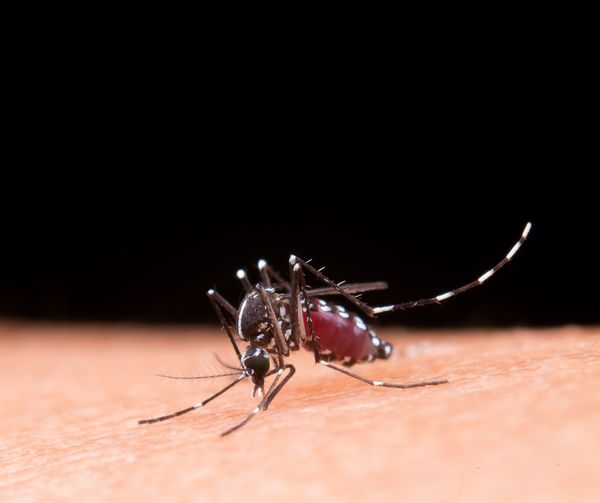WASHINGTON _ The Federal Emergency Management Agency awarded large contracts to several inexperienced companies after Hurricane Maria's devastating strike on Puerto Rico, some of which had never conducted the kind of work they were assigned, according to a McClatchy analysis of government contracting records.
McClatchy analyzed the federal contracting database for Hurricane Maria and identified at least 10 winning bidders with sizable work from FEMA despite having little or no track record. Most of the contractors declined to comment.
Most appear to be performing the work as required, but their selection for major contracts highlights a long-running challenge at the agency with vetting contractors.
FEMA had already been in the spotlight for two high-profile contracting missteps involving botched delivery of food and tarps to Puerto Rico. The McClatchy analysis raises questions about how inexperienced companies keep winning contracts, including one this year for distribution of diesel fuel.
The awarding of contracts to inexperienced bidders could not be explained away by the initial emergency rush. A year later, such companies are still winning FEMA contracts.
And a year after the storm, and despite all the federal contracts, Puerto Rico still experiences shortages.
"It's staggering," said Michael Child, chief operating officer for AIM World Services Inc., a contractor based in The Woodlands, Texas. AIM does relief and defense work and was listed as an interested bidder for a Hurricane Maria contract that ultimately went to a first-time FEMA bidder. "Certain things you would think would be readily available (in Puerto Rico a year after the storm) are still not available."
AIM won other contracts for longer-term work on the island.
Congress has closely watched FEMA's contracting practices since 2005, when local and federal relief and recovery efforts were swamped by Hurricane Katrina and its deadly march through New Orleans and the Gulf Coast.
Since then, FEMA adopted a more robust system of advance contracting. It sought to have in place more contracts for goods and services with experienced suppliers that could kick into force even before a storm made landfall.
Yet when Hurricane Maria roared across Puerto Rico last Sept. 20 just weeks after Hurricane Harvey flooded Houston and Hurricane Irma heavily damaged Florida and the U.S. Virgin Islands, FEMA's plans weren't enough to handle three major storms within a month.
In their aftermath, a stretched FEMA signed more contracts last fall than it had in any other entire fiscal year.
"I think it's gotten better in that there are long-term standby contracts ... but you need to be prepared for unusual situations," said Clifford Villa, who worked at the Environmental Protection Agency as a disaster lawyer until 2015 and now teaches law at the University of New Mexico.
The Government Accountability Office, the congressional watchdog on spending, came to the same conclusion in a report issued this month. The GAO said FEMA and the U.S. Army Corps of Engineers had almost $1.5 billion in pre-approved spending released thanks to the advance contracts, but it still wasn't nearly enough for Puerto Rico, which had shaky finances and infrastructure, after the Category 4 hurricane.
The insufficient amount of advance supplies was exacerbated by FEMA's shortage of personnel, especially Spanish-speaking workers, across a range of specialties, including contract officers.
"Based on its internal workforce analyses, FEMA faced a staff shortage of more than 30 percent as of September 1, 2017," the new GAO report concluded.
When Maria hit, FEMA's thin staff was stretched to the breaking point, as the agency was still responding to Hurricane Harvey, which hit the Texas Gulf Coast in late August, and Hurricane Irma, which had hit 10 days earlier.
Because of the shortage of Spanish speakers, FEMA couldn't communicate with Puerto Rico residents or translate documents and was forced to deploy staffers to the island who weren't physically capable of handling the extreme conditions on the island, the GAO said.
And it took longer for FEMA to get enough staff on the ground. FEMA reached its peak staffing in Puerto Rico 71 days after the hurricane made landfall, while FEMA's staffing for Harvey peaked 39 days after landfall and FEMA's staffing for Irma came 30 days after landfall. FEMA said that was mitigated by Puerto Rico having a proportionally higher number of Department of Defense personnel and National Guard Bureau personnel than other disasters, which supplemented FEMA staff.
FEMA has offered few details about two high-profiled contracts that it canceled or the degree to which staffing affected contracts. But the GAO report supports the findings in McClatchy's analysis that FEMA struggles to fully vet its suppliers.
This January, FEMA signed a $24.7 million contract to store and supply fuel across Puerto Rico. The winning bidder was La Casa del Camionero, a Puerto Rican supplier of truck parts incorporated in 1989.
But truck-parts supply wasn't the skill set FEMA sought. The contract required the winning bidder to supply 10 fuel dispensing sites, distribution of 70,000 gallons of diesel fuel daily, about 150 deliveries a day and at least 97 specialized trucks and drivers, 40 storage tanks and arrangements for inter-island maritime transport of fuel.
"The contract is for daily fueling of FEMA and USACE (Army Corps of Engineers) generators and light towers throughout Puerto Rico and includes labor, material, transportation and the fuel itself," FEMA said in a written response to questions. "La Casa is a well-known, local company, and fully responsible and eligible for federal contracts."
In fact, La Casa del Camionero won its first federal contract just months before Hurricane Maria's landfall. It won four contracts in early 2017 _ one as small as $249 and all totaling just over $50,000 to supply water pumps and generator parts to the Justice Department and the Pentagon.
After the hurricane it won $40 million in contracts. In January 2018 it won the fuel supply contract, followed by awards of $8.9 million and $7 million in March and June.
"They have performed satisfactorily on the contract, resulting in two contract extensions," FEMA said in a statement.
Documents available online from Puerto Rico's corporate registry show that in January, the same month La Casa won the first of at least 12 contracts this year, the person listed as responsible for the company's regulatory filings changed. It was no longer Sandra Rodriguez, who appeared on the federal bid documents, as a woman-owned company, but Fernando Soto. Businesses owned by women and minorities get preferences in federal contracting.
Soto appears on several corporate filings this year, but two corporate resolutions that might offer explanation appear as blank pages. The Puerto Rico secretary of state's office, responsible for the registry, did not answer its phones when McClatchy tried to contact it over a period of almost a month.
McClatchy reached out first to Rodriguez, who declined to discuss the FEMA contract. Soto was located at another number elsewhere on the island, and when asked basic details about the contract, he grew angry and hung up.
The company has three Facebook pages, and they show the company's evolution from a small-parts supplier before Hurricane Maria into an entirely different company post-hurricane.
In the days before and after the hurricane, the company offered for sale motor oil and other items sure to be in demand. In late 2017 it was still touting itself as an authorized dealer for filters and transmissions. By early February, just weeks after winning the big contract, it began advertising for mechanics who could work with gas and diesel generators. On April 18, three months after winning the contract, it was promoting La Casa del Camionero as a fuel-management company.
Macro Oil Company, based in Broussard, Louisiana, and a leading emergency fuel provider, had been doing fuel distribution work in Puerto Rico until early this year. It tried to research La Casa del Camionero after the contract shifted to local companies.
"We had a lot of difficulty finding information out about them," said Patrick McElligott, an emergency fuels manager with Macro, which now does fuel distribution on the island for the U.S. Army Corps of Engineers as a subcontractor.
The award was puzzling, he said, because so little was known about the winner.
There is nothing in the contract database that says La Casa del Camionero failed to perform, and there is nothing inherently untoward about expanding into a new line of business.
But the size of the contract with La Casa del Camionero and its inexperience stand out, especially in light of the earlier high-profile missteps in FEMA contracting and the agency's reluctance to provide details about the award.
"There should be internal checks on that sort of thing," said Villa, the former EPA disaster lawyer.
A clear example came this February when The New York Times detailed how, shortly after Maria's landfall, a one-woman shop in Atlanta won a $156 million contract to provide 30 million meals to desperate Puerto Ricans. Within weeks, FEMA canceled the contract, one of its largest given out immediately after the hurricane.
Tiffany C. Brown's company, Tribute Contracting LLC, already banned from selling to the Government Publishing Office for failure to live up to contracts, was able to get the massive contract from FEMA despite that ban, a spotty performance record and an unproven history on contracts of this size.
"This is a sign that they did not do their due diligence," said Peter Tyler, a contracting expert for the Project on Government Oversight, a private watchdog over government spending that has spotlighted contracting deficiencies.
FEMA has not disclosed how much of the $156 million it had paid Brown in advance, and in a brief phone call with McClatchy she declined to discuss the matter.
"We're still in litigation, I have no comment thank you," Brown said before hanging up.
Breedlove Foods in Lubbock, Texas, signed a supply contract with Brown, who does not list any subcontractors on the public part of her contract that called for 30 million meals. She reportedly delivered 50,000 meals before the contract was canceled last Oct. 23, just 20 days after being signed.
When Brown last December brought her appeal against FEMA for the contract termination, she sought at least $70 million of the contracted $156 million. FEMA declined to discuss the matter, saying only that it "is pending."
Breedlove supplies processed foods that are distributed for humanitarian purposes by the U.S. Agency for International Development, CEO Bill Miller said, adding that his organization is registered with FEMA but in this case had signed a contract with Brown.
"We did confirm that Tribute had a contract with FEMA. It's in our best interest to try to work this out rather than get into some protracted litigation," Miller said, declining to discuss how much he is owed. "It's not like we have hundreds of thousands of dollars to throw back into this thing in pointless litigation." In a late August phone interview, Miller said he doesn't know how much Brown had been paid but "we didn't see a drop of it."
Months after the negative headlines, Brown did something unusual. Securities and Exchange Commission documents show that she sought to raise up to $1 million from private investors last summer who would take a stake in her company. It wasn't clear from the June 29 filing how the money would be used.
There were no further filings, so it's unclear what amount if any she raised in the Tribute Contracting offering that required investors to plunk down a minimum investment of $10,000.
Close examination of FEMA contracts suggests Brown wasn't the only supplier with a small footprint and large award.
Another high-profile FEMA contracting misstep came via a Florida company called Bronze Star LLC., the focus of a story by The Associated Press last November which showed two contracts worth a total of $30 million were canceled by FEMA for failure to deliver emergency tarps and plastic sheeting to cover damaged roofs in Puerto Rico.
At the time it won the bidding on Oct. 10, weeks after Maria's landfall, Bronze Star was a new entrant to FEMA contracting with no track record.
A contractor that had lost out to Bronze Star, speaking to McClatchy on the condition of anonymity because the company is still working with FEMA in Puerto Rico, said it should have been obvious to FEMA that this first-time bidder couldn't find supplies. Experienced suppliers had told FEMA the product was not readily available in the quantities needed.
McClatchy has learned that Bronze Star LLC was officially incorporated on Aug. 15, five weeks before Maria struck but just five months after another Florida corporation with the exact same name shut down.
The original Bronze Star LLC was formed in February 2012 in Fernandina Beach by Michael A. Anthony, who offered leadership training classes derived from his military background. Reached in Japan, where he is serving as an Army reservist, Anthony said he had no ties to the bidders and was unaware that his company's name was lifted so quickly after he dissolved it in March 2017.
The winners of the FEMA contract were brothers Kayon and Richard Jones, the former also appearing in Florida's corporate registry as owner of Five Star Electrical Contracting in the Orlando area. Neither man returned numerous phone messages with specific questions about how Bronze Star won such a large contract.
The two large contracts called for 500,000 tarps and 60,000 plastic-sheeting rolls. How they won the contract with no prior experience highlights concerns about internal checks on FEMA contracts.
"They have to show some expertise in the field," said Khi Thai, who founded the Public Procurement Center at Florida Atlantic University and is a recognized expert on public contracts. "That's kind of questionable."







